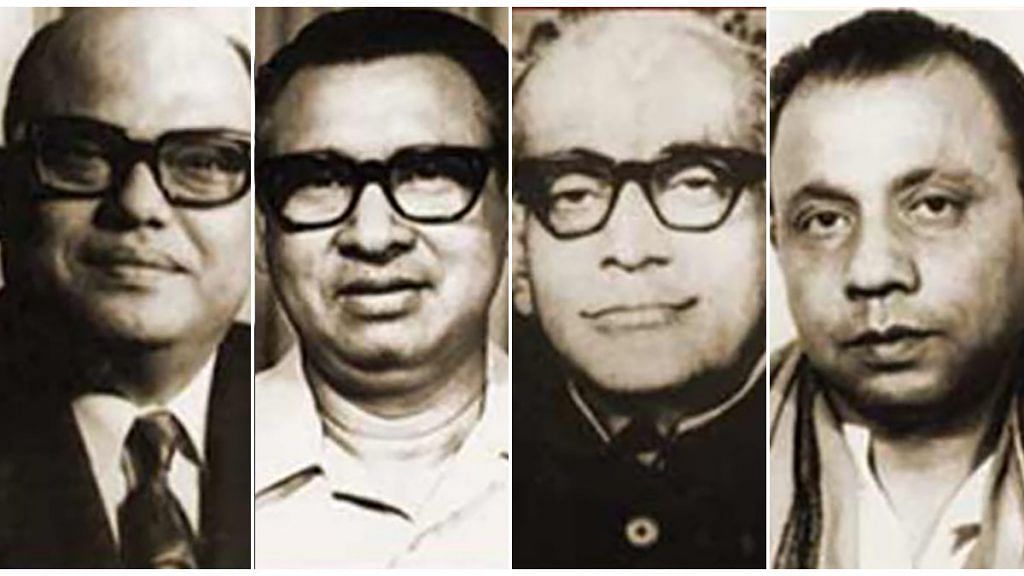New Delhi: On 3 November 1975, Bangladesh’s four founding leaders, who played a crucial role in the 1971 Liberation War, were assassinated in the Dhaka Central Jail after a military coup in the country. Since then, the day has been commemorated as the ‘Jail Killing Day’ in the country.
The four senior leaders of the Awami League — Bangladesh’s then acting president Syed Nazrul Islam, prime minister Tajuddin Ahmad, finance minister Mansur Ali and home minister A.H.M. Qamruzzaman — were killed with “bullets and bayonets” by an anti-liberation force.
Their assassination followed a series of events that began with the assassination of Bangabandhu Sheikh Mujibur Rahman, who is considered Bangladesh’s ‘Father of the Nation’ and led the 1971 war, at his residence on 15 August 1975. Rahman is also the father of present prime minister, Sheikh Hasina.
The four leaders were Rahman’s close allies and were arrested after his death and killed in state custody.
The killings of Rahman and the four national leaders were part of the same conspiracy and the “killers wanted to take revenge of the partition of Pakistan”, alleges the Awami League.
Every year, on ‘Jail Killing Day’, the Bangladesh government organises various programmes to commemorate the day. However, due to the Covid-19 pandemic this year, the Awami League will only hold a discussion at its central office in Dhaka, which PM Sheikh Hasina will attend via video conference.
Also read: Comparison between India and Bangladesh GDP misleading — former chief economic advisor
Court trials and convictions
After Sheikh Hasina assumed power in Bangladesh in 1996, her government initiated a trial against those accused of the assassination by revoking an indemnity law that was protecting the accused.
On 20 October 2004, after a protracted trial, the Dhaka Metropolitan Sessions Judge Court declared 15 of the 20 accused, guilty and released the other five. All 20 accused were former military officers.
Of the 15 convicted, three fugitives were given the death penalty and 12 were sentenced to life imprisonment. The three sentenced to death were Sentry Marfot Ali Shah, Sergeant Moslem Uddin and LD Sentry Mohammad Abul Hashem Mridha.
On 28 August 2008, a High Court acquitted six of the accused. The court released two who were earlier given death sentences — Sentry Marfot Ali Shah and D Sentry Mohammad Abul Hashem Mridha— and four others who were sentenced to life imprisonment.
The four released included Lt Colonel (retd) Syed Faruqe Rahman, Lt Colonel (retd) Shahriar Rashid Khan, Major (retd) Bazlul Huda and Lt Colonel (retd) A.K.M. Mohiuddin Ahmed.
However, these four were convicted in Bangabandhu’s assassination and executed on 27 January 2010.
In 2012, the ‘Jail Killing Day’ case was reopened under an appellate division of the Supreme Court.
On 30 April 2013, the court dismissed the 2008 verdict given by the High Court and instead upheld the 2004 judgment that convicted the 15 accused.
Also read: To be the next China, India must first beat Bangladesh
